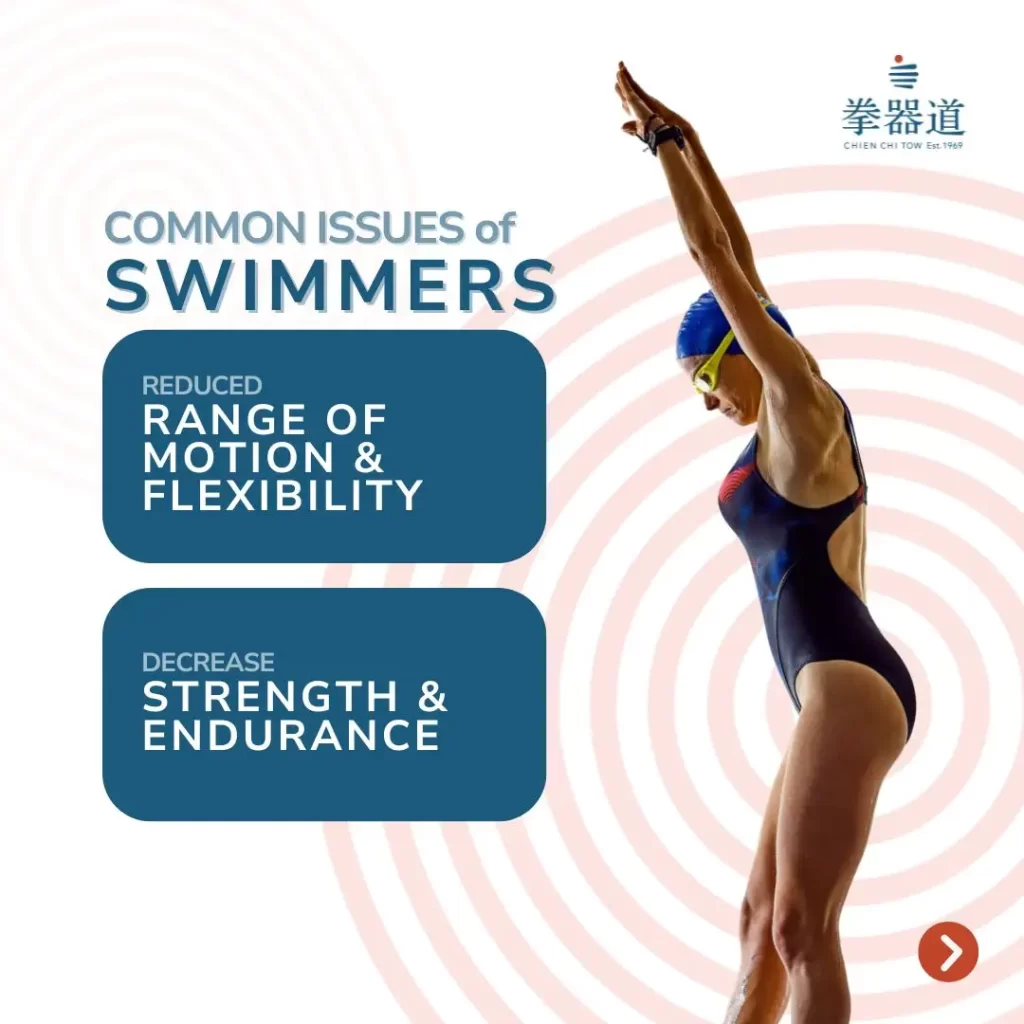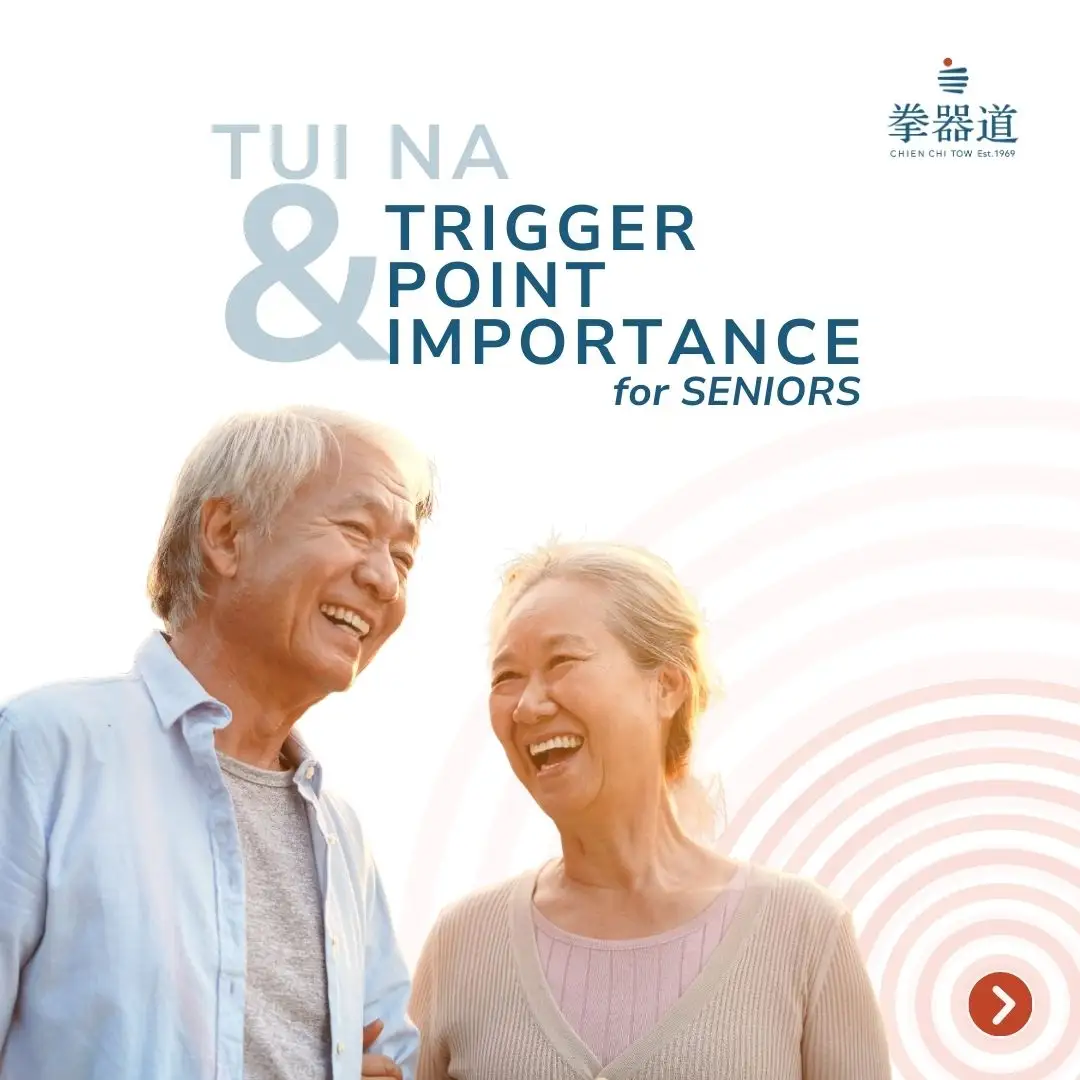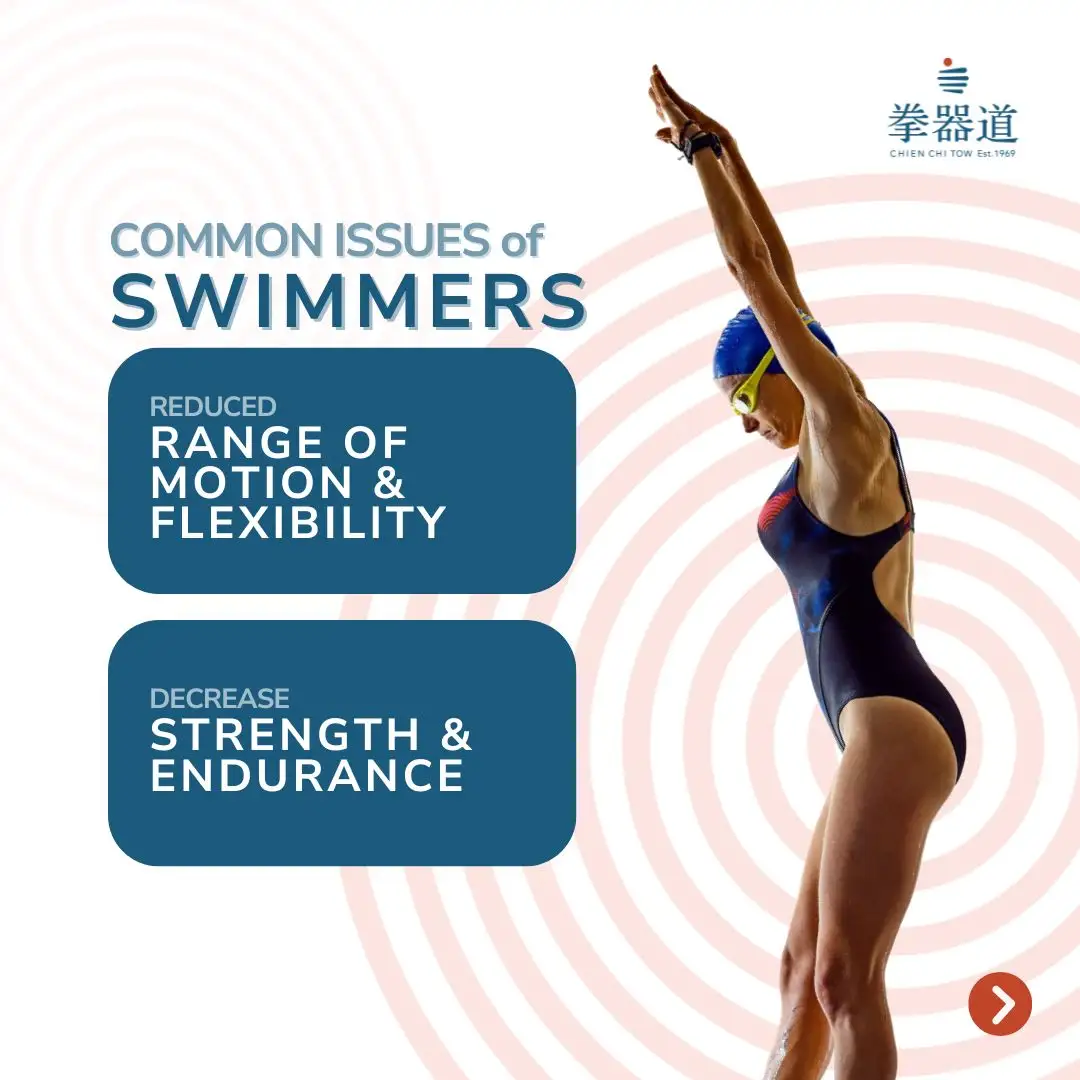Swimming is a demanding sport that requires a blend of strength, endurance, flexibility, and technique. Swimmers often face numerous challenges during their training that can impact their performance, health, and overall well-being. Understanding these common issues and exploring effective solutions such as Traditional Chinese Medicine (TCM) Tuina massage and trigger point therapy can significantly enhance swimmers’ recovery and performance.
Common Physical Issues Faced by Swimmers
Physical Issues
Muscle Fatigue and Overuse Injuries
- Shoulders (Deltoids, Rotator Cuff Muscles): The shoulder muscles, including the deltoids and rotator cuff, are heavily used in all swimming strokes. Overuse can lead to conditions such as swimmer’s shoulder, characterized by pain, inflammation, and impingement in the shoulder joint.
- Knees (Quadriceps, Hamstrings, Patellar Tendon): The breaststroke in particular places significant stress on the knees, leading to conditions such as patellar tendinitis.
- Lower Back (Erector Spinae, Multifidus): The lower back muscles are engaged in maintaining body position and rotation. Overuse can result in lower back pain and muscle strain.
Impact on Swimmers
- Reduced range of motion and flexibility.
- Decreased strength and power in affected muscles.
- Persistent pain that can interfere with training and performance.
- Increased risk of more severe injuries if left untreated.
Joint and Muscle Pain
- Shoulders (Supraspinatus, Infraspinatus, Subscapularis, Teres Minor): Rotator cuff muscles are prone to tendinitis and bursitis due to repetitive overhead movements.
- Knees (Quadriceps, Hamstrings, Gastrocnemius, Soleus): Knee pain is often caused by the repetitive flexion and extension motions, particularly in the breaststroke.
- Lower Back (Erector Spinae, Latissimus Dorsi): Lower back pain can result from improper technique or weak core muscles, leading to muscle strain.
Impact on Swimmers
- Persistent discomfort and pain during training and daily activities.
- Inhibited performance due to pain and reduced mobility.
- Risk of chronic conditions if not properly managed.
Breathing Difficulties
- Diaphragm: The primary muscle for respiration, which can become fatigued with poor breathing techniques.
- Intercostal Muscles: These muscles assist with the expansion and contraction of the rib cage during breathing and can become strained.
- Scalene and Sternocleidomastoid Muscles: Involved in elevating the ribs and assisting with deep breathing, often overworked in swimmers who have not mastered efficient breathing techniques.
Impact on Swimmers
- Reduced stamina and increased fatigue.
- Poor oxygenation leading to decreased muscle performance.
- Anxiety and stress related to breathing difficulties during intense training or competitions.
Training-Related Issues
Technique Flaws
Poor technique can lead to inefficiencies in the water, increasing the risk of injuries and hindering performance. Regular feedback and corrections from coaches are crucial for maintaining proper form and technique.
Inadequate Recovery
Insufficient rest and recovery time can impair performance and increase the risk of injuries. Proper sleep, nutrition, and recovery protocols are essential for maintaining peak performance.
Imbalanced Training
Focusing too much on certain aspects of training, such as speed over endurance or vice versa, can lead to imbalances that affect overall performance. A well-rounded training program is essential for optimal results.
The Role of TCM Tuina Massage and Trigger Point Therapy in Enhancing Performance and Recovery
TCM Tuina Massage
Tuina (or Tui Na) is a form of Chinese manipulative therapy that involves various hand techniques to massage the body, stimulate acupuncture points, and balance the flow of Qi (vital energy). Tuina is often used in conjunction with other TCM practices such as acupuncture and herbal medicine.
Balancing Qi
Tuina aims to balance the body’s energy, which can enhance overall physical and mental well-being. A balanced Qi flow is believed to improve stamina, endurance, and mental focus, all of which are important for swimmers.
Muscle Relaxation
Tuina helps in relaxing tense muscles, reducing muscle stiffness, and improving flexibility. This relaxation is crucial for swimmers to maintain optimal performance and prevent injuries.
Enhanced Circulation
The techniques used in Tuina massage improve blood and lymphatic circulation. This helps in better oxygen delivery to muscles and the removal of metabolic waste products, enhancing muscle recovery and performance.
Stress Reduction
Regular Tuina massage can reduce stress and anxiety, contributing to better mental focus and calmness during competitions. Stress reduction also aids in overall recovery and well-being.
Injury Prevention and Rehabilitation
Tuina can be used both to prevent injuries by maintaining muscle and joint health and to rehabilitate existing injuries by promoting healing and reducing pain.
Trigger Point Therapy Practice
Trigger points are hyperirritable spots in the fascia surrounding skeletal muscle, often referred to as muscle knots. These points can cause pain, stiffness, and decreased range of motion. Trigger point therapy involves applying pressure to these points to alleviate pain and restore normal muscle function.
Pain Relief
By targeting specific trigger points, this therapy can alleviate muscle pain and discomfort, allowing swimmers to train and perform without being hindered by muscle pain.
Improved Flexibility and Range of Motion
Releasing trigger points can help restore normal muscle function and improve flexibility. This is crucial for swimmers who need a full range of motion for efficient strokes.
Enhanced Muscle Function
By reducing muscle tension, trigger point therapy can improve muscle coordination and strength, which are essential for powerful and efficient swimming movements.
Faster Recovery
Trigger point therapy can enhance blood flow hence reducing inflammation, speeding up the recovery process after intense training sessions or competitions.
Benefits of TCM Tuina Massage and Trigger Point Therapy for Swimmers
Improved Performance
By addressing muscle tension, improving flexibility, and enhancing overall physical and mental well-being, TCM Tuina massage and trigger point therapy can significantly improve a swimmer’s performance. Swimmers can experience increased stamina, better form, and more efficient movements in the water.
Reduced Risk of Injuries
Tuina massage and trigger point therapy can help prevent injuries by maintaining muscle and joint health, reducing muscle tension, and promoting proper alignment and movement patterns. This proactive approach to injury prevention is essential for long-term progression in swimming.
Enhanced Recovery
Swimmers can benefit from a shorter recovery period after intense training sessions and competitions. Improved blood flow, reduced inflammation, and enhanced relaxation all contribute to more efficient recovery, allowing swimmers to train harder and more consistently.
Better Mental Health
The stress reduction and relaxation benefits of TCM Tuina massage can have a positive impact on a swimmer’s mental health. Reduced anxiety, improved focus, and a greater sense of well-being can contribute to better performance and a more enjoyable training experience.
Conclusion
Swimming is a demanding sport that requires a holistic approach to training, recovery, and overall well-being. Swimmers face numerous challenges, from physical issues like muscle fatigue and joint pain to psychological stress and motivational fluctuations. Traditional Chinese Medicine Tuina massage and trigger point therapy offer effective solutions to these challenges by addressing both the physical and mental aspects of performance.
By incorporating these therapies into their routine, swimmers can optimize their physical condition, prevent injuries, and enhance their overall performance in the pool. The combination of TCM Tuina massage and trigger point therapy provides a comprehensive approach to improving recovery, maintaining health, and achieving peak performance. Through regular treatment and a focus on balanced training and recovery, swimmers can overcome common issues and reach their full potential in the sport.









